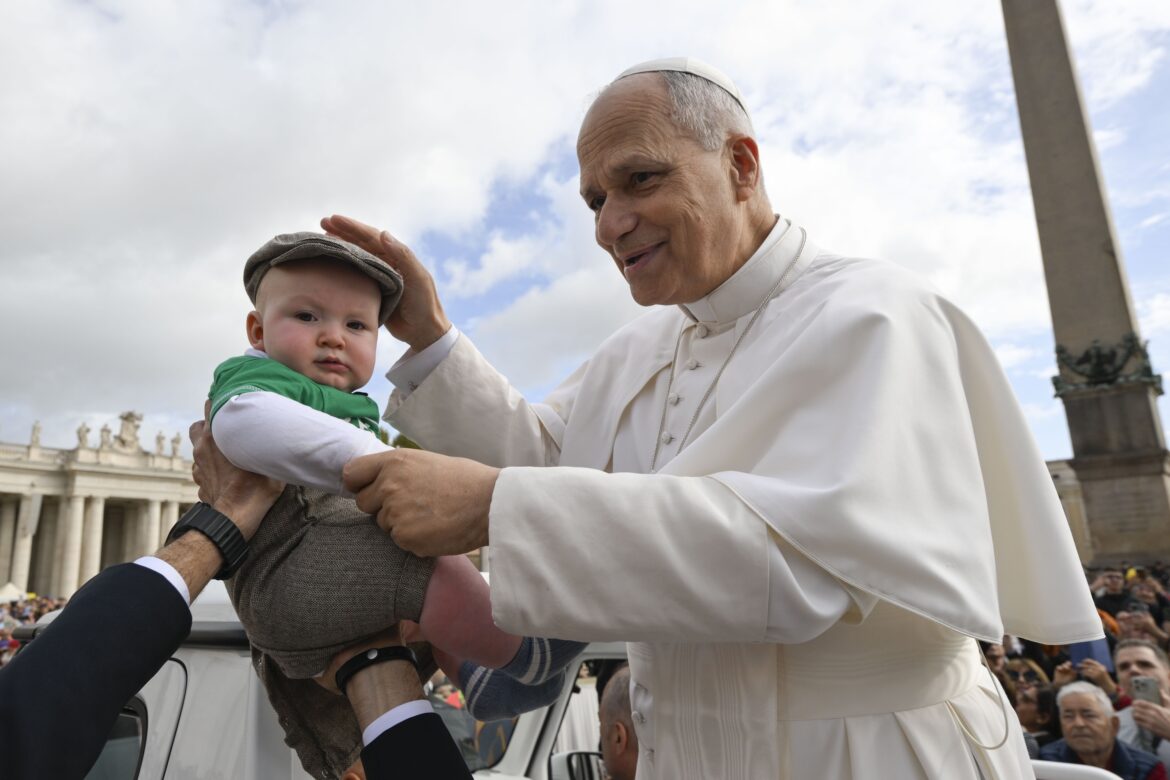VATICAN CITY (CNS) — Living in hope means accepting that one does not have answers to all questions and staying calm amid conflicts and tensions, Pope Leo XIV said.
“We do not have the answers to all the questions already. But we have Jesus. We follow Jesus. And so, we hope for what we do not yet see,” the pope told pilgrims at a special Jubilee general audience Oct. 25.
In the pope’s brief remarks, he offered pilgrims the example of Nicholas of Cusa, a German cardinal and papal diplomat in the 1400s, which the pope described as “an equally troubled age” of wars between nations and divisions among Christians.
But, the pope said in English, “despite the tensions, Nicholas hoped for what he could not see and trusted that God could find unity.”
Hope means trusting God that “things are not as they seem,” the pope said. The resurrection of Jesus means “love has triumphed, even though before our eyes we see many contradictions and the clash of many opposites.”
Christians today should learn from Nicholas, he said. “When we do not know the answers let us remember the Risen One and ask him to lead us, step by step, on the journey of hope.”
Many of contemporaries of Nicholas “lived in fear,” the pope said. “Others took up arms, preparing new crusades. Nicholas, however, chose from his youth to keep company with those who had hope.”
The German cardinal “believed in humanity. He understood that there are opposites that must be held together, that God is a mystery in which what is in tension finds unity.”
The cardinal also “knew what he did not know” and accepted that, the pope said. In fact, in many of his writings, the simple and uneducated characters asked the learned “simple questions that unsettle their certainties.”
“It is the same in today’s church,” Pope Leo said. “How many questions unsettle our teaching! Questions from the young, from the poor, from women, from those who have been silenced or condemned because they are different from the majority.”
The many questions are an indication that “we live in a blessed time,” he said. “The church becomes an expert in humanity if she walks with humanity and carries in her heart the echo of its questions.”




